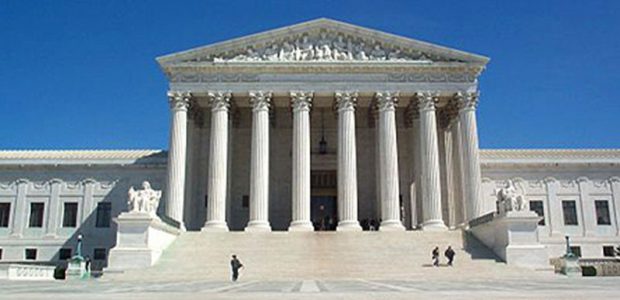


The Supreme Court today ruled that Twitter was not liable for ISIS using their platform before the 2017 ISIS attack on a nightclub in Istanbul, Turkey that left 39 dead and many more wounded. Specifically, the unanimous court found that the plaintiff did not make a specific correlation of the use of Twitter by ISIS and the nightclub shootings that killed Nawras Alassaf, a Jordanian citizen:
SCOTUSBLOG – The Supreme Court on Thursday ruled against the family of a 2017 ISIS attack victim who sought to hold tech companies liable for allowing ISIS to use their platforms in its terrorism efforts. The lawsuit seeking to hold Twitter, Facebook, and Google liable for aiding and abetting international terrorism cannot go forward, a unanimous court found. And based on that decision, the justices sidestepped a major ruling in a separate case on the scope of Section 230 of the Communications Decency Act of 1996, which generally shields tech companies from liability for content published by users. The justices sent that case, Gonzalez v. Google LLC, back to the lower court for another look – suggesting that it too was unlikely to survive.
Justice Clarence Thomas wrote for a unanimous court in Twitter v. Taamneh, a lawsuit filed by the family of a Jordanian citizen, Nawras Alassaf, who was killed in an ISIS attack on an Istanbul nightclub in 2017. The lawsuit relied on the Antiterrorism Act, which allows U.S. nationals to sue anyone who “aids and abets, by knowingly providing substantial assistance,” international terrorism. The Taamneh family argued that Twitter and the other tech companies knew that their platforms played an important role in ISIS’s terrorism efforts but nonetheless failed to take action to keep ISIS content off those platforms.
The U.S. Court of Appeals for the 9th Circuit allowed the family’s lawsuit to go forward, but on Thursday the Supreme Court reversed. Thomas noted that the “mere creation of” social-media platforms “is not culpable,” even if “bad actors like ISIS are able to use” those platforms for “illegal — and sometimes terrible — ends. But the same could be said of cell phones, email, or the internet generally,” Thomas emphasized.
Instead, Thomas explained, what the family’s argument really boils down to is that the tech companies should be held liable for “an alleged failure to stop ISIS from using these platforms.” But the family has not demonstrated the kind of link between the tech companies and the attack on the nightclub that it would need to show to hold the companies liable, Thomas reasoned. Instead, he observed, the companies’ “relationship with ISIS and its supporters appears to have been the same as their relationship with their billion-plus other users: arm’s length, passive, and largely indifferent.” And the relationship between the companies and the attack on the nightclub is even more attenuated, Thomas wrote, when the family has never alleged that ISIS used the social-media platforms to plan the attack.
Neither the case against Google mentioned above or this case against Twitter did anything to change the fact that Section 230 protects these Big Tech companies from liability.
That could change in the future but for now the immunity shield is still in tact. As far as Twitter goes, I don’t mind so much now that it’s under a more responsible management now.
